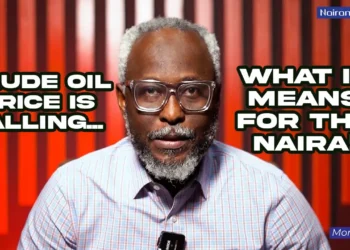The United States Energy Information Administration (EIA) has increased its Brent crude oil price forecast for 2020 by $2.50 per barrel. This was disclosed in its monthly Short-Term Energy Outlook (STEO) report for July.
According to the report, the international benchmark is now expected to average $40.50 per barrel this year, higher than its previous estimate of $38 a barrel.
Prices of Brent crude had averaged $50 per barrel over the period of January to March of this year and as low as $29 per barrel during the second quarter of this year when the COVID-19 pandemic and lockdown were predominantly in place. By projections, it is expected to average $40 a barrel in the third quarter of the year and $43 a barrel in the last quarter of the year.
The report also forecasts that “Brent will average $49.70 per barrel next year, as inventories decline into 2021.” It added that “The forecast of rising crude oil prices reflects the EIA’s expectation of declines in global oil inventories during the second half of 2020 and through 2021.”
It also revealed that U.S. crude output unchanged as the EIA did not revise crude oil production for July’s STEO report and it is expected to average 11.60 million BPD in 2020 but decrease to an average of 11 million BPD in 2021.
READ MORE: Brent Crude gains ground, Oil traders optimism rebounds
Stephen Innes, Chief Global Market Strategist at AxiCorp in a note to Nairametrics explained the macros of Crude in Q3 2020.
He said: “While it is probably true that oil markets were too quick to price in a worst-case scenario of oil in Q2, current circumstances suggest that traders do not want to make another mistake only this time pricing in too much bullish bravado to start Q3.”
“The high degree of prudent price action suggests that traders are taking a more balanced view of risks, particularly on-demand possibly until they get a better read on local US government’s healthcare response to the Sunbelt hotspots. The ability of the soft lockdown measures to control the spread could ultimately provide the litmus test for the oil market in Q3,” he added.





















